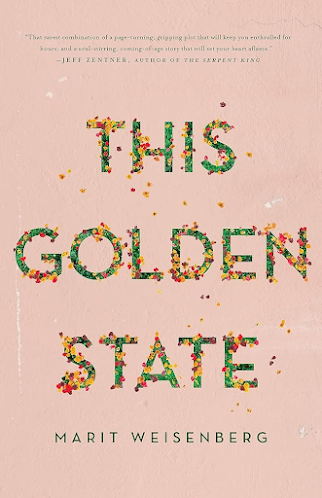How I Became a North Korean
Krys Lee’s 2016 novel How I Became a North Korean is the story of three very unfortunate Korean lives in contemporary northern China, near the border of North Korea, most likely Dandong (China) and Sinuiju (North Korea). The novel’s structure works well, even if the three main characters seem at first to have nothing in common. The book cycles through the three characters who tell their stories in the order of Yongju, Daehan or Danny, and Jangmi, all from their radically different worlds and perspectives.
Yongju is the son of a top-ranking, rich family in North Korea, having direct ties with the Great General himself. His father did business deals overseas, legitimate or not. At one of the Dear Leader’s extravagant, expensive parties, Yongju witnesses the murder of his father by the Dear Leader himself because of perceived betrayal.
Daehan, or Danny, is a 16-year-old devout Christian living in Loma Linda, California. When he was nine, his family emigrated from China’s Autonomous Korean Prefecture. While he has great interest in survival training and the Boy Scouts, and while he excels in academic subjects, he suffers from depression and constant bullying from classmates.
Jangmi is a young woman who boldly crosses the Tumen River to become the “bride” of a Joseon-jok (ethnic Korean living in China) named Seongsik. Having survived the Great Hunger (famine) in North Korea, she crosses into China, pretending that she died in order to give her unborn child a better life. Her new husband does not know of her pregnancy, and she must use her beauty and charm to secure the relationship.
After “meeting” these three fascinating-but-unrelated characters, the reader wonders if they will ever connect. We see the characters having to react to the most traumatic events in their lives, along with wondering if the Chinese and North Korean police forces will catch and repatriate them. It is hard to imagine worse traumas than what these characters endured: Yongju not only sees his father murdered, but his little sister and mother whisked away to what is most likely sex slavery and torture; after Daehan rolls off his kayak at Bible camp (which he convinces himself was just a strange reaction to his fear of the water, but actually an attempt at suicide), his worried father sends him to his mother, who is supposed to be doing mission work in northern China, but turns out to be having an affair; Jangmi takes advantage of Seongsik’s “love” for her, but his bratty daughter, Byeol (ironically named “Star”) gives away the fact of Jangmi’s pregnancy by talking about her morning sickness.
The three characters meet again, first in a cave that “houses” a band of refugee boys, and then at a secret safe house run by South Korean Christian missionaries. Jangmi betrays the group of boys by stealing all of their valuable possessions, but then ends up kidnapped by a gang that imprisons her in an online sex slavery trade. The boys, on the other hand, are “rescued” by Missionary Kwon and placed in the safe house, but then find themselves imprisoned as model North Korean refugees who must learn about spreading the Word of God, and undergo “conversion” as future missionaries/spies sent to North Korea. All of the North Korean refugees suffer from the arbitrary power of criminals and Christians. Since they are undocumented and dependent on others for survival (food, shelter), many take this opportunity to exploit and hurt them, whether in the name of God or for illegal profit.
Through absolutely horrific ordeals (sex slavery, death of family members, a lost unborn child, near-starvation, and the revolt against and murder of Missionary Kwon), the refugees experience the limits of hunger and the evil consequences of borders. Yongju, for instance, knows what hunger means after living such a privileged life: “To be beyond hunger must be a place beyond desire” (191). Jangmi, for her part, seems to give in to Yongju’s love and care for her. She was so hardened to life and always thought “everything is an exchange” (202). Struggling with his Christian faith and his sexual identity, Danny finally calls his parents, who send a “broker” to take the refugees on their perilous journeys to Thailand and other countries. He realizes that “Maps are borders that keep people in and others out” (227). All three characters are desperate to make border crossings, but they need to cling to their last shreds of humanity as they try to survive the harsh lack of care of others who view them as dirty North Koreans.
This novel strikes me as uncomfortably relevant to one of the most pressing issues throughout the world. In almost every depiction of refugees, they are described as the desperate “others” that have no rights and no usefulness because they are dependent. Whether they are fleeing war, political upheaval, economic disaster, natural disaster, or direct persecution, they are described as alien and a threat to the “normal” population. As we can see, in China, South Korea, Germany, the U.S, and many other countries, people suspect refugees to be job-stealers, rapists, murderers, and drains on society. In short, refugees are blamed for every problem. Most frighteningly, conditions are ripe for fascist and isolationist policies when a sizable number of refugees need to cross borders.
- Kyujin



Hey Kyujin, this seems like a very suspenseful and traumatic story, for the characters and the reader. This is relatable with all the wars going on right now.
ReplyDeleteThank you Lenny! This is the first time anyone has replied to my post!
DeleteThis story sounds very interesting! I'm curious about how the characters interact with each other when they meet because they sound like they have very different personalities. I like the way you connected the themes in this novel with issues happening in real life involving refugees. Great review!
ReplyDeleteThanks, I appreciate that! I think you would really enjoy this book.
Delete